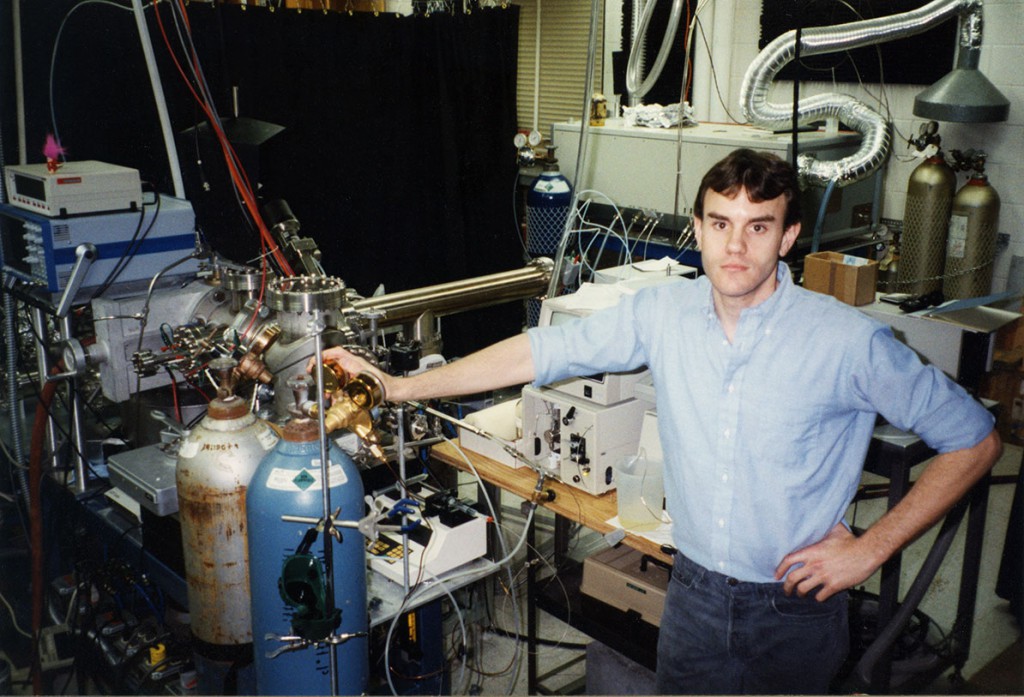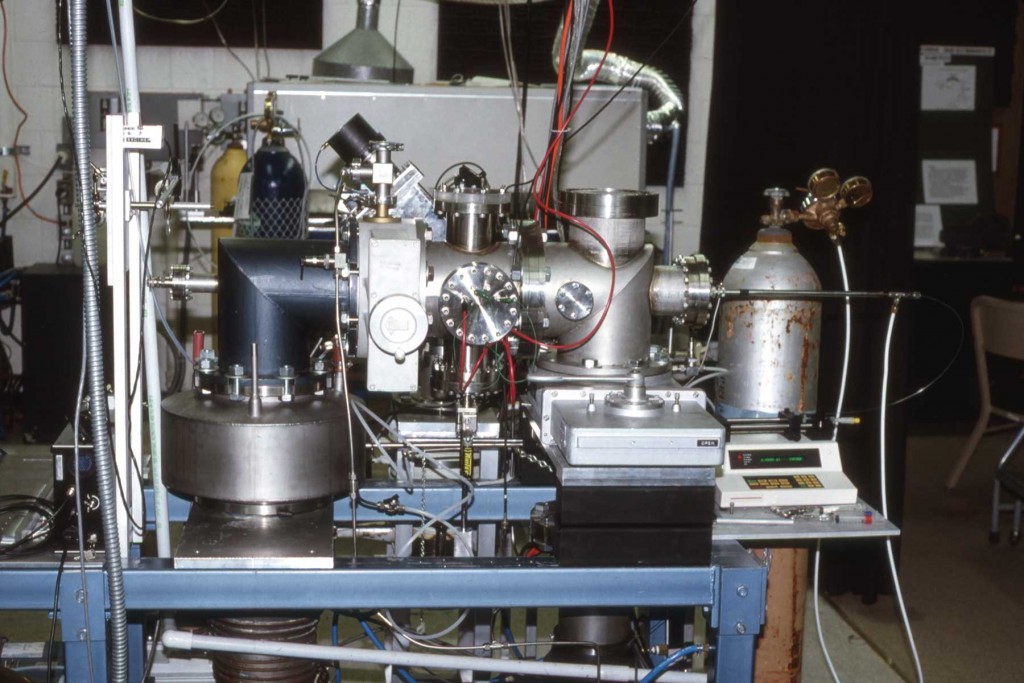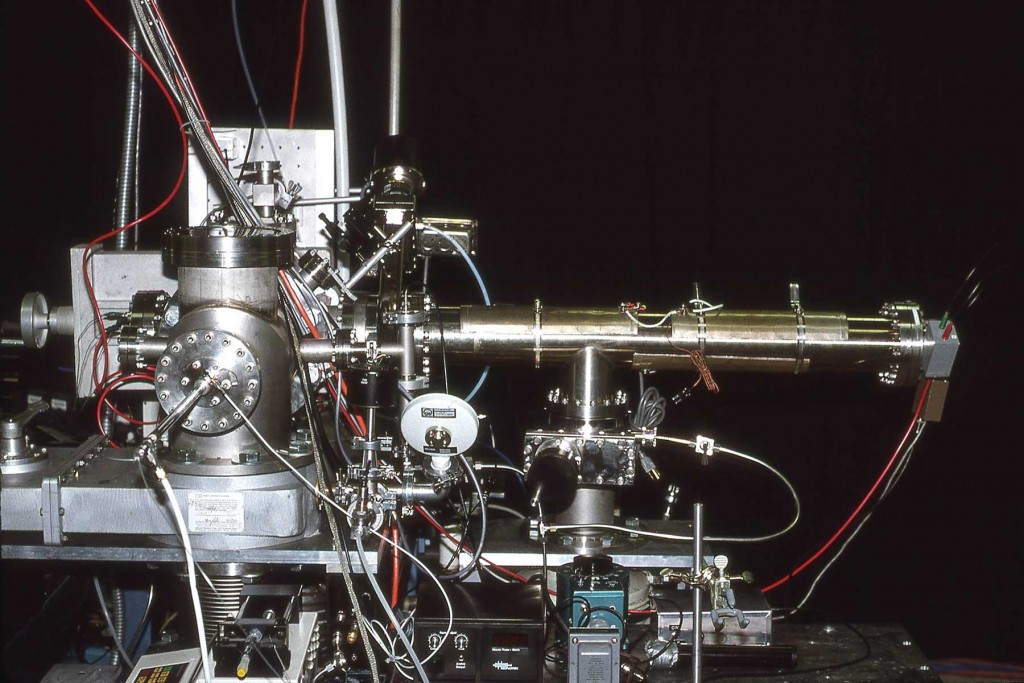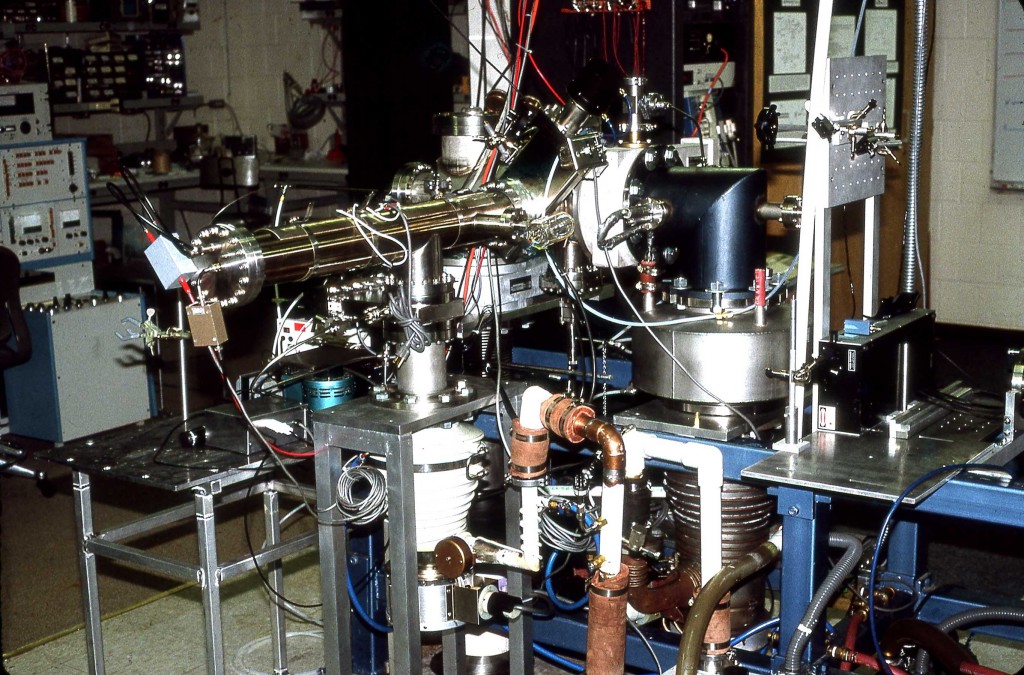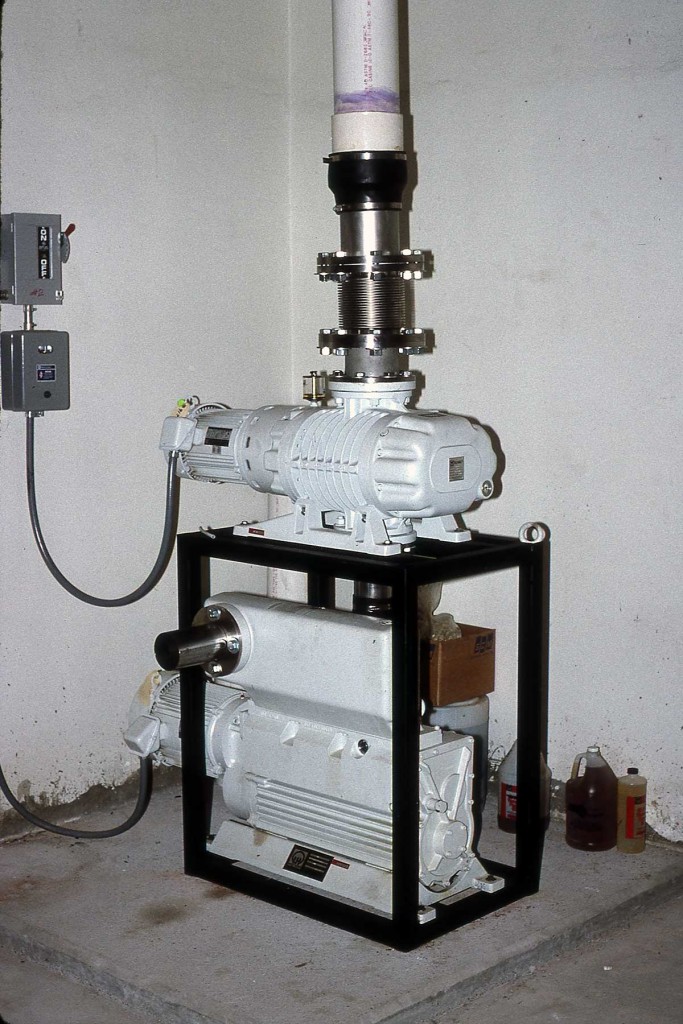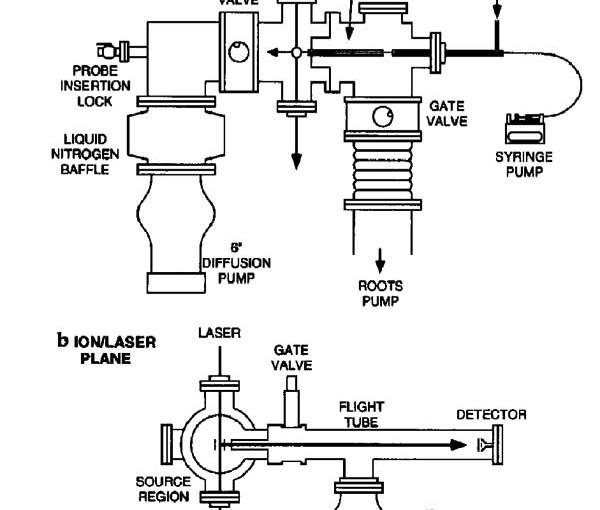K.K. Murray, D.H. Russell, Liquid Sample Introduction for Matrix-Assisted Laser Desorption Ionization, Anal. Chem., 65 (1993) 2534-2537; http://10.1021/ac00066a023.
Abstract
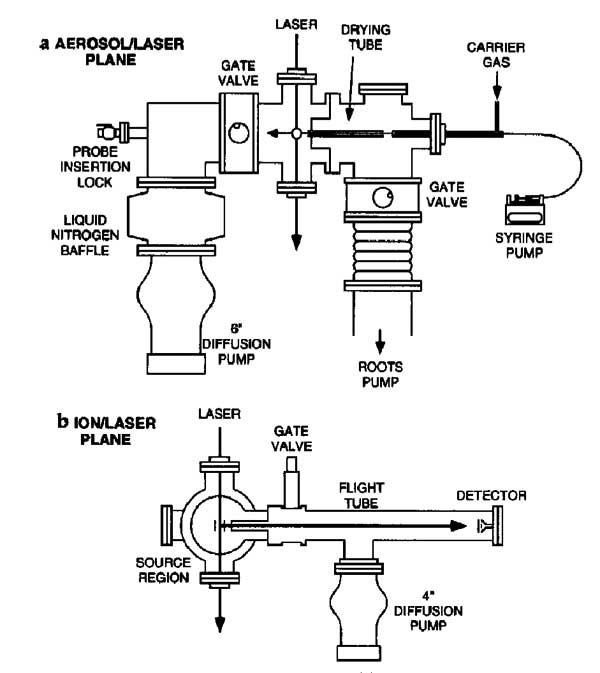
In this paper initial results are presented for a new liquid introduction method for a mass spectrometer based on the application of MALDI to aerosols. Details of the method will be presented in future publications. Aerosols are formed using a continuous pneumatic aerosol generator from an acidified methanol solution containing the matrix and analyte. The solvent is removed by passing the aerosol through a heated tube to form a collimated beam of dried particles. Ions are formed by irradiating the aerosol with pulsed UV radiation in the source region of a linear TOF MS. The advantages of the aerosol MALDI TOF method are (1) liquid flow capacity of 0.5 mL/min, (2) rapid acquisition of the entire mass spectrum, and (3) ionization of large peptides and proteins. In this paper, the aerosol MALDI mass spectra of gramicidin S and lysozyme (chicken egg white) are presented. Flow injection mass spectra of gramicidin S are presented to demonstrate the feasibility of coupling aerosol MALDI with HPLC.
